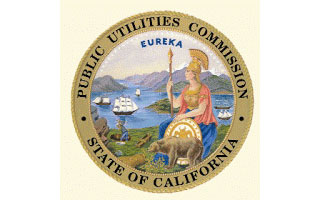Category Archives: Uncategorized
Hey, Siri And Alexa: Let’s Talk Privacy Practices
by Elizabeth Weise, USA Today

The worry is that this trickle of helpful adjuncts could become a flood of invasive devices bent on listening and learning from everything we say around them. … Could there come a day when talking about buying a faucet in the kitchen could be overheard by your TV in the living room, changing the types of commercials that show up when you’re watching your favorite program the next night? … One concern has been that law enforcement might subpoena sound files recorded in a home when investigating a crime, or that they could be discoverable in a divorce proceeding. Read More ›
Get Ready For A World Of Hackable Cars
by Elizabeth Weise, USA Today
“If you’ve got GPS or Bluetooth access or a WiFi hotspot in your car — which is coming — there’s a wide range of hacks for getting in,” [one expert said.] … The convergence between connected cars and nefarious hackers (as opposed to research hackers) is coming, say [others. … One expert] says he does caution friends to avoid the dongles popular with some auto insurance companies that allow them to monitor a car’s actions. It’s one thing to trust Ford or Chevrolet. But with those, he said, “you’re not even trusting your insurance company, your’e trusting whoever they bought the dongle from.” Read More ›
These Are U.S. Consumers’ Top 5 Complaints
by Krystal Steinmetz, Money Talks News
Debt collection gripes made up 29 percent of the complaint calls to the FTC last year, while 16 percent of the complaints were related to identity theft. … “We recognize that identity theft and unlawful debt collection practices continue to cause significant harm to many consumers,” Jessica Rich, director of the FTC’s Bureau of Consumer Protection, said in a statement. “Steps like the recent upgrade to IdentityTheft.gov and our leadership of a nationwide initiative to combat unlawful debt collection practices are critical to our ongoing work to protect consumers from these harms.” Read More ›
Overdraft Practices Continue To Gut Bank Accounts And Haunt Customers
by Michael Corkery and Jessica Silver-Greenberg, New York Times

The nation’s big consumer banks collected about $11 billion in overdraft fees last year, which accounted for 8 percent of their profits, according to a report by the Consumer Financial Protection Bureau. … Many customers end up confused by how overdrafts work. In their marketing materials, for example, banks present the choice of whether to sign up for overdraft as an offer of “overdraft protection” — a feature many customers thought would automatically deny transactions and shield them from incurring the fees at all. In reality, it is a service authorizing the banks to charge the overdraft fees. Read More ›
Judge Asked To Fine PG&E $112 Million For Carmel Blast
by Jaxon Van Derbeken, San Francisco Chronicle

“PG&E should be reminded that the commission and its staff are not operating on a ‘need-to-know’ basis with PG&E,” [Ed Moldavsky, an attorney for CPUC’s safety division,] wrote in his recommendation. … “PG&E has a duty to disclose even troubling facts to the commission,” Moldavsky wrote. “PG&E’s failure to do so makes a mockery out of the regulatory compact.” … “How many times does the corporate mule need to be hit over the head with a 2-by-4 to get its attention?” [Carmel] city attorneys asked. … “Yet here we are again. The facts are clear, and the law is clear.” Read More ›
Federal Efforts In Data Privacy Move Slowly
by Natasha Singer, New York Times

After Congress failed to take up baseline consumer privacy legislation, the [Obama] administration issued its own discussion draft of a bill last year. … Consumer advocates are not holding their breath, although some are turning to the states to enact consumer privacy protections for technologies like facial recognition, voice-controlled smart TVs and social media services. “An individual should have control over their information,” said Jeffrey Chester, the executive director of the Center for Digital Democracy, a nonprofit group in Washington, “not a Facebook, Google or Internet service provider.” Read More ›
PG&E Can’t Find Original Records For South Bay Gas Lines
by Jaxon Van Derbeken, San Francisco Chronicle

The Public Utilities Commission inquiry is focused on PG&E’s distribution pipes, which snake through neighborhoods, delivering gas to homes and businesses. They are smaller than transmission pipelines such as the one that exploded in San Bruno in 2010, killing eight people. That disaster happened when a flawed pipeline weld — which did not show up on PG&E records and had never been tested — ruptured. … Utilities commission staffers are pressing for a large fine against PG&E for the Carmel blast, saying the company did little about the issues raised by its missing De Anza records until after the explosion. Read More ›
Regulators Get Input – Sort Of – On Self-Driving Car Rollout
by Justin Pritchard, Associated Press
California’s DMV is still months away from finalizing any regulations. Under the draft framework, an independent certifier would need to verify a manufacturer’s assurances that its cars are safe. Google and traditional automakers want manufacturer self-certification, the standard for other cars. Once a company receives that verification, manufacturers would receive a permit for three years. Consumers could lease the cars, but manufacturers would be required to keep tabs on how safely they are driving and report that performance to the state. Drivers would need special, manufacturer-provided training, and then get a special certification on their licenses. Read More ›
California Solar Owners Face New Fees, Utilities Say Costs Should Be Higher
by Ivan Penn, Los Angeles Times

[The CPUC] narrowly passed new rules that will increase costs for owners of rooftop solar systems, part of a broad reshaping of the state’s energy future. … New solar customers would face a one-time charge to tie into the grid. The commission estimates the fee would range from $75 to $150 per solar customer. In addition, rooftop solar customers would pay a fee estimated at 2 cents per kilowatt-hour for electricity used from the utility companies, no matter how much power their solar systems generate. Read More ›
Hard Drives Holding Health Data Missing At Medical Insurer
by Chris Rauber, San Francisco Business Times

The latest in a series of huge data losses in the health care realm — health insurer Centene’s loss of six hard drives containing personal information on 950,000 enrollees — raises more questions about the security of health data that consumers entrust to insurance companies, hospital systems, Medicare, Medicaid and other big players. … Confidential health care data can sell in murky portions of the Internet for $10 to $50 per record — far more than the roughly $1 a simple credit-card number is worth. Medicare records are even more valuable, … and can sell for as much as $470 per record. Read More ›
Why Procrastinating With Your Tax Return Could Cost You
by Jonnelle Marte, Washington Post

“It’s even more important this year to file early,” says Melissa Labant director of tax advocacy for the American Institute of CPAs. “The later [people] wait, the more they increase the chances of having a criminal file on their behalf.” Take a look at what happened last year. On Feb. 5, Intuit, the maker of TurboTax, temporarily stopped processing state tax returns after noticing a surge in suspicious filings. Some states later reported that fraudulent activity had multiplied by nearly 40 times — and it was only a little more than two weeks into the filing season. Read More ›
Wendy’s Probes Reports Of Credit Card Breach
by Brian Krebs, KrebsOnSecurity

Wendy’s, the nationwide chain of fast-food restaurants, says it is investigating claims of a possible credit card breach at some locations. The acknowledgment comes in response to questions from KrebsOnSecurity about banking industry sources who discovered a pattern of fraud on cards that were all recently used at various Wendy’s locations.
Bob Bertini, spokesperson for the Dublin, Ohio-based restauranteur, said the company began receiving reports earlier this month from its payment industry contacts about a potential breach and that Wendy’s has hired a security firm to investigate the claims. Read More ›
Order Could Lead To Release Of E-Mails Between Brown’s Office, CPUC
by Jaxon Van Derbeken, San Francisco Chronicle

The state Public Utilities Commission must justify its refusal to release e-mails that could reveal a behind-the-scenes role for Gov. Jerry Brown in a multibillion-dollar deal with two utilities that shut down a Southern California nuclear power plant, a San Francisco judge ruled Monday. … A lawyer challenging the $3.3 billion charge to the utilities’ customers is seeking the e-mails as potential evidence of intervention in the shutdown negotiations by the governor’s office and top commission officials. The state attorney general’s office is also seeking the e-mails as part of its corruption probe of the agency. Read More ›